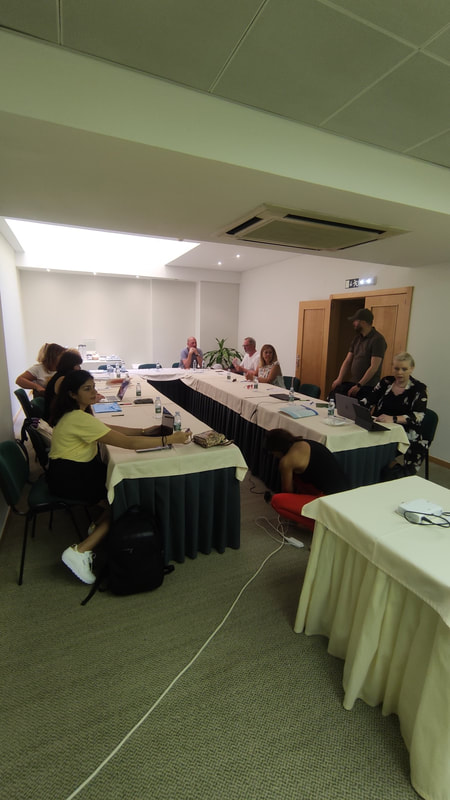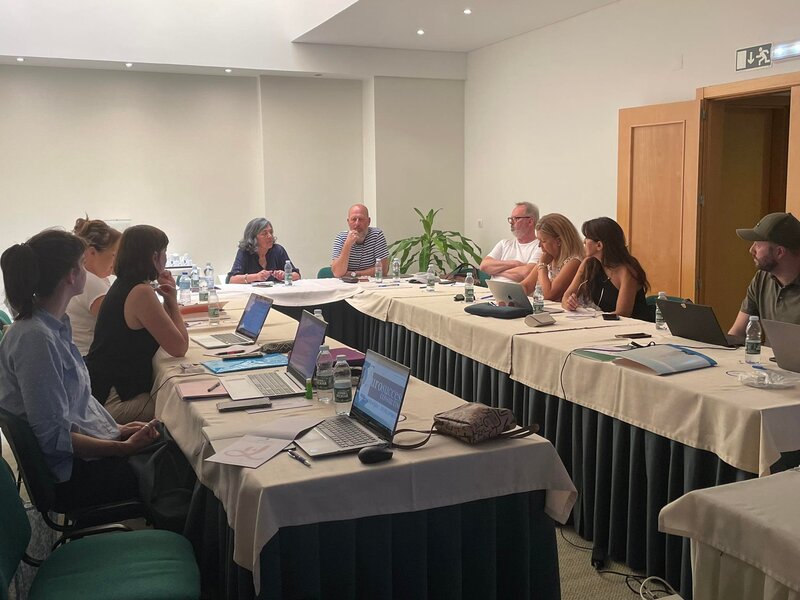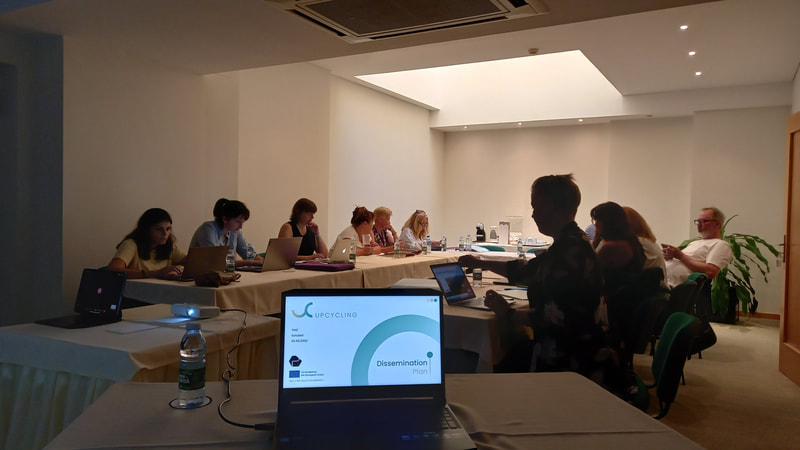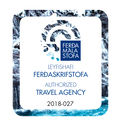|
The second Transnational Project Meeting in the UPCYCLING project was held in Setúbal, Portugal on 19 - 20 September 2022. The project - which centres on ways to generate less waste and create value-added products in a creative way - is supported by the Erasmus+ Programme of the European Commission and brings together eight cross-sector institutions from seven culturally diverse countries (Iceland, Spain, Italy, Portugal, The Netherlands, Cyprus and Poland).
The meeting focused on project updates on development of the conceptual background and the framework for the blended course for school educators about the importance of upcycling with practical ideas on how to implement this in the classroom. The project team enjoyed the hospitality of the host partner in Setúbal and look forwards to the next steps in the project which will focus primarily on training workshops and webinars for teachers interested in introducing upcylcing in their classrooms. to edit. The Icelandic Erasmus+ National Agency awarded in total fourteen project grants on 14 October 2021, including a €320.000 grant to the UPCYCLING project led by Reykjanes UNESCO Global Geopark and partnered by amongst others GeoCamp Iceland. These are the first projects to receive grants after the new Erasmus+ programme launched which will bring over €26.2 billion to support mobility and cooperation in the years 2021-2027.
The UPCYCLING project - which officially starts in February 2022 and runs for 30 months - will focus on ways to generate less waste and create value-added products in a creative way. The objectives will be to develop and disseminate educational material on climate change and recycling for primary schools. This is the first Erasmus+ project to be led by Reykjanes UNESCO Global Geopark and the first time GeoCamp Iceland participates in an Erasmus+ partnership. "With the project we are strengthening further our cooperation with Reykjanes UNESCO Global Geopark with focus on educational development in the area" says Arnbjorn Olafsson, Managing Director of GeoCamp Iceland. "We've previously been working with Sudurnes Science and Learning Center on developing international Science Camps in Reykjanes, and we are currently working with Keilir Academy in Iceland as well as the Technical University of Liberec and Geopark Ralsko in the Czech Republic on developing educational and training material for geo-teachers. Along with this first Erasmus+ project we participate in we hope to be able to generate increased interest in earth science and climate change, as well as encourage young people to actively take part in understanding the World they live in and the Earth they live on." Along with the two Icelandic partners, other partners in the UPCYCLING project include Polygonal in Italy, Nefinia in the Netherlands, Open Europe in Spain, Agrupamento de Escolas do Barreiro in Portugal and Szkola Podstawowa in Poland. |
Archives
March 2024
Categories
All
|
|
GeoSchool - GeoCamp Iceland is an educational project dedicated to increasing knowledge and understanding in natural sciences with practical and active learning. We develop educational content, student and teacher guides and curricula, organize and receive international study groups focusing on STEM education.
|





 RSS Feed
RSS Feed

